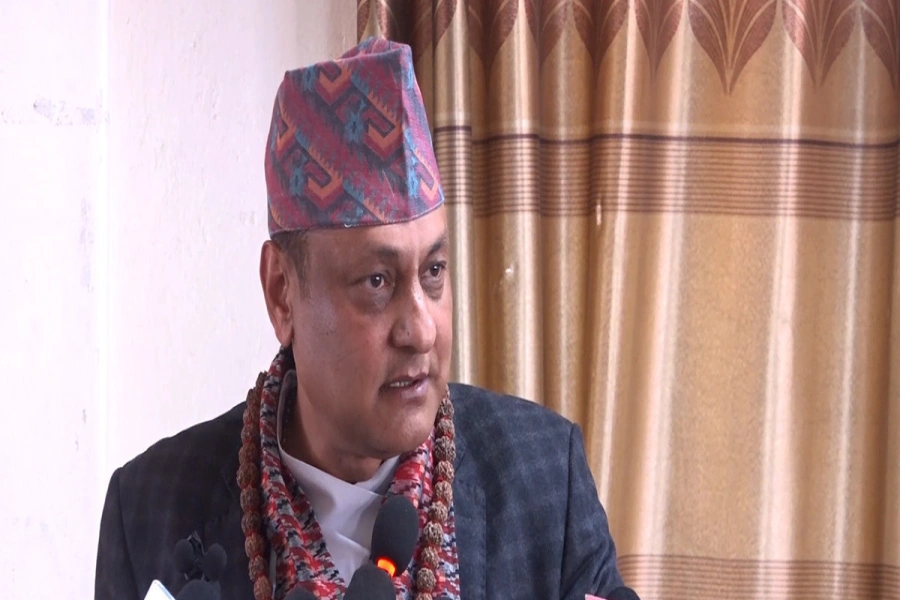KATHMANDU, Dec 5: Stating that market monitoring activities of government agencies were not becoming effective, lawmakers are to set to conduct market monitoring on their own.
A sub-committee formed under the Committee on Industry, Commerce, Labor and Consumer Welfare of parliament took the decision on Tuesday. The sub-committee was formed by the committee two weeks ago to assess recent hike in the price of essential commodities. It is led by lawmaker Nar Bahadur Dhami.
The parliamentary committee has given the sub-committee one month to study reasons behind increasing market anomalies. Similarly, it has also been asked to assess legal shortcomings and study whether existing laws are working. However, consumer rights activists have criticized the decision of the parliamentary committee stating that the house panel instead has to focus on devising effective mechanism to check the market anomalies.
Nepal-China security personnel conduct joint border inspection

Madhav Timalsina, president of the Consumer Rights Investigation Forum, who participated in the sub-committee meeting, said that lawmakers have decided to lead the market inspection by including representatives of the government agencies authorized for regulating the market in the team. “The meeting concluded that ineffective market monitoring has given rise to the cartel, price hike and sale of substandard products in the market,” said Timalsina.
The government has assigned 10 agencies to check fraudulent practices in the market. They include the Department of Commerce, Supply and Consumer Protection, the Department of Food Technology and Quality Control, the Department of Livestock Development, Nepal Bureau of Standards and Metrology, and the Department of Drug Administration, among others.
Service delivery of these agencies, however, are not up to the mark. “For instance, prices of vegetables and fruits have skyrocketed in recent days. But the concerned bodies have remained indifferent to the market situation,” Timalsina said, adding that the parliamentary sub-committee suspects the price hike is due to shortage created by cartel of some traders.
Consumer rights activists, however, say that it would not be appropriate for lawmakers themselves to go to the market for inspection.
Prem Lal Maharjan, president of National Consumers Forum, said lawmakers need to focus on formulating laws rather than involving themselves in the action. “They should make changes in existing laws if needed to make market monitoring more effective,” he added.
The constitution guarantees consumer protection as a fundamental right. In accordance with this provision, the Consumer Protection Act was endorsed in October 2018. However, the government has failed to enforce related regulation even a year after parliament passed the act.
The act has also provisioned creating consumer courts under a district judge and with two government officials as members to look into cases related to consumer rights. But nothing has been done so far due to delay in bringing the regulation.



































